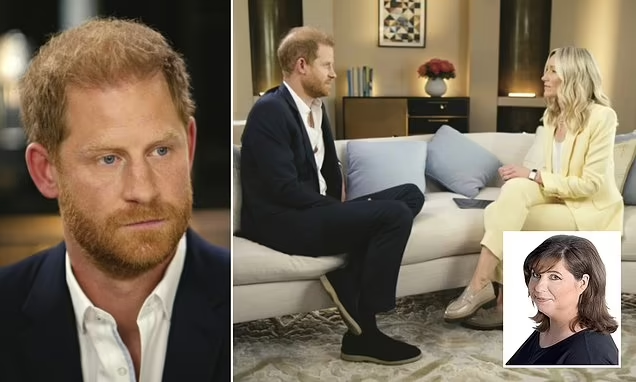Prince Harry has faced several deeply emotional public moments, many of which are linked to revelations about his family and his own struggles. One of the most heartbreaking was when he spoke about his wife Meghan Markle’s miscarriage, which he believed was exacerbated by the intense media pressures they faced. This experience left Harry visibly shaken, as he shared in the couple’s documentary, adding that the experience of losing a child and watching his wife suffer compounded his stress and grief. He also recalled moments of feeling isolated and misunderstood by his family, particularly when sharing his mental health struggles, which were met with what he described as institutional indifference.

These revelations highlight Harry’s ongoing struggle to balance his personal emotions with the public role he once held. His openness about grief and mental health has resonated widely, adding to his advocacy for mental wellness. His decision to speak about these private pains publicly has sparked discussions on the royal family’s handling of mental health and the profound effects of relentless media scrutiny. This candidness marks a break from royal traditions of privacy, reflecting Harry’s commitment to living openly and authentically
Prince Harry’s public breakdowns and emotional revelations have been closely tied to some of the most painful events in his life, especially the loss of his mother, Princess Diana, and Meghan Markle’s miscarriage. These deeply personal experiences have not only affected him but also fueled his advocacy for mental health. Harry’s openness has sparked debates about the British royal family’s traditional emphasis on emotional restraint and the toll it takes on individual members.
Reflecting on his childhood, Harry has often cited the traumatic impact of Princess Diana’s untimely death. Growing up under the media spotlight, he felt a significant lack of emotional support, which led him to internalize grief from a young age. His breakdowns, both public and private, have sometimes occurred around events that trigger memories of his mother, adding layers to his mental health struggles. His documentary and interviews reveal how this unresolved grief continued to affect him well into adulthood.
The toll of media pressure is another major theme in Harry’s journey. The constant intrusion into his family life reached a peak during Meghan’s miscarriage, which he associates with the stress caused by legal battles and invasive media coverage. Describing this period, Harry shared how the grief of losing a child was compounded by a sense of helplessness in protecting his family from public scrutiny.
In addition, Harry has voiced feeling unsupported by the royal institution, describing a culture of indifference to mental health struggles. In his accounts, the royal family has often prioritized public image over the personal well-being of its members, leaving him to feel isolated and, at times, even gaslit by the institution. This realization contributed to Harry and Meghan’s decision to step back from royal duties, choosing instead to focus on a life of emotional transparency and advocacy.
Their openness has resonated with a global audience, particularly those who relate to Harry’s experiences with loss, mental health struggles, and strained family dynamics. By sharing his story, Harry aims to normalize conversations about mental health, urging others to break the silence surrounding grief and emotional pain. His journey underscores the importance of creating safe spaces for vulnerability and support, especially within family structures that may prioritize tradition over individual well-being.
Would you like to know more about his work in mental health advocacy?
